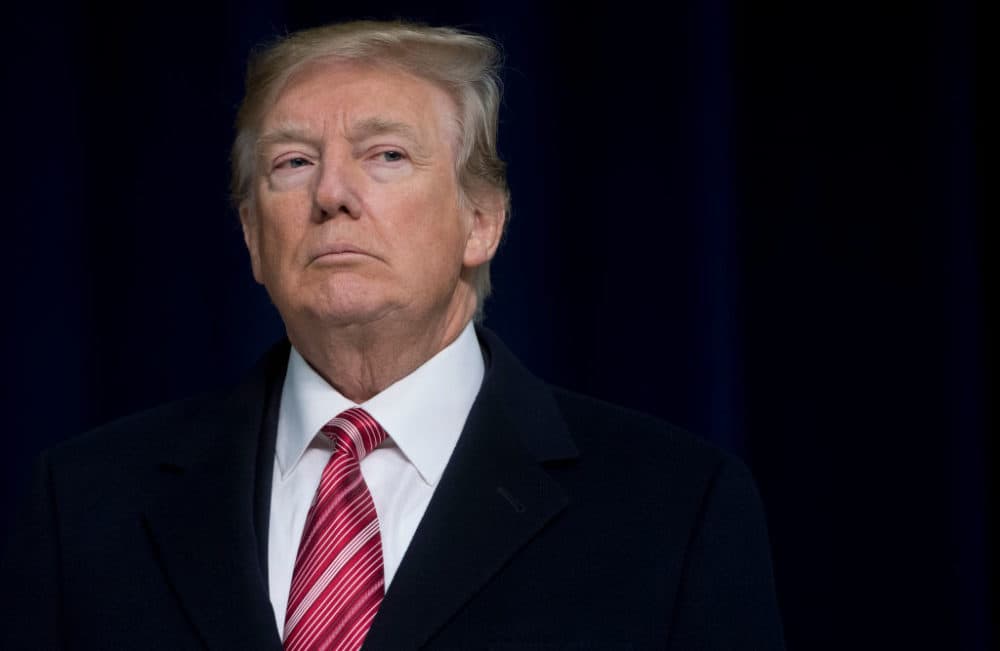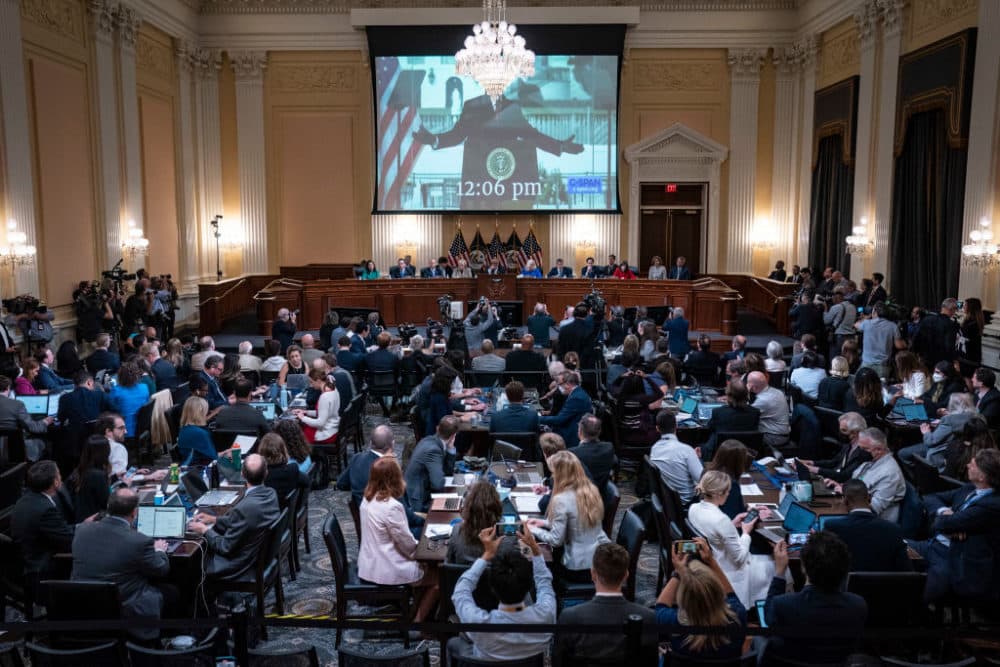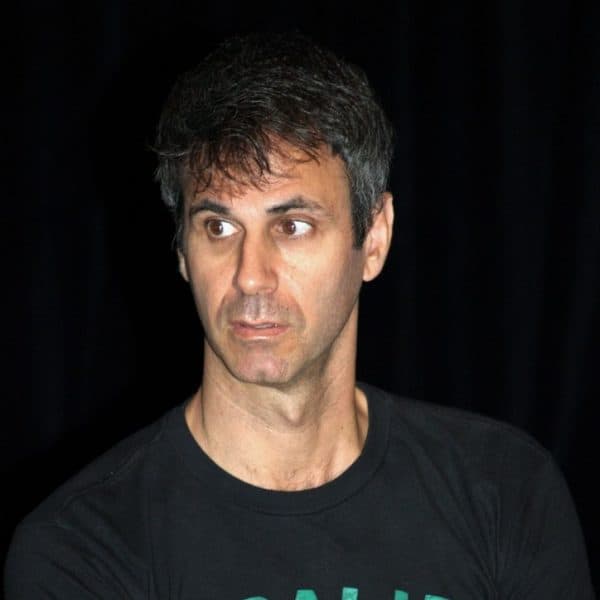Advertisement
Commentary
Mining Trump's 'Heart of Darkness'

As a novelist, my mind has often latched onto literature in an effort to apprehend the moral depravity of the Trump years. There’s a cartoonish extremity to The Donald that scans more like a super-villain than a standard politician.
Watching a failed real estate mogul turned reality TV star reinvent himself as a political demagogue, I thought about Phillip Roth’s 2004 novel, “The Plot Against America,” in which another celebrity (a fictionalized version of Charles Lindbergh) leverages his fame to launch a disastrous presidency.
As Trump rage-tweeted through his first year in office, I couldn’t help but think about Captain Ahab’s famous declaration, “I’d strike the sun if it insulted me.”
And as it became increasingly clear that Trump enjoyed stoking political violence, and courting white supremacist groups, my mind traveled to the happy savagery of Ralph and his feral band of hunters in “Lord of the Flies.”
Trump has been gone from office for 18 months. But thanks to the House Jan. 6 committee hearings, we are coming to understand from eyewitnesses how Trump chose to foment an armed insurrection against Congress rather than accept his fate as America’s biggest presidential loser.
Watching the hearings has been like reading Joseph Conrad’s famous novella “Heart of Darkness,” which documents the pursuit of a man whose retreat into
megalomania spurs him to establish a gruesome cult.
Tonight’s prime-time hearing, presumably the committee’s finale, will focus on Trump’s behavior during the 187 minutes that his supporters were brutalizing police, storming the Capitol, and calling for Vice President Mike Pence to be hanged.

Of course, we already know that Trump was doing: He was watching the destruction he had orchestrated — which would result in five deaths, hundreds of injuries and scores of arrests — and reveling in it.
As commander-in-chief, it was Trump’s sworn duty to the Constitution to quell this armed rebellion. Instead, he behaved like a sadistic teenage gamer, gleefully watching the carnage as his aides frantically sought to rouse his conscience.
Listening to these first-hand accounts of his desperate tantrums, I kept thinking of
Conrad’s description of Kurtz: “I saw the inconceivable mystery of a soul that knew no restraint, no faith, no fear, yet struggling blindly with itself.”
It can be hard to see around the unstable aggression of a tyrant. But Conrad’s final
depiction of Kurtz speaks to the sorrow that has always lurked beneath Trump’s raging bluster. “I saw on that ivory face the expression of sombre pride,” the author writes, “of ruthless power, of craven terror — of an intense and hopeless despair.”
Advertisement
Given the mountain of evidence the Jan. 6 committee has amassed, there is no
longer any credible doubt as to Trump’s criminality; that he assembled and incited a mob, based on conspiracies he knew to be fraudulent, then gloried in their lethal mayhem.
But there is one mystery that has yet to be plumbed: how and why citizens who
consider themselves patriotic, who loudly celebrate the Constitution and the rule of law, continue to support a man who smugly desecrates both.
There is no “logical” solution to this mystery. It resides within the individual psyches of those Americans — including some of those who testified against Trump.
But there is one universal element in the psychology of a Trump voter: the capacity to justify their support by any means necessary. Indeed, this is the central allure of Trumpism. The former president’s supporters love him precisely because he violates norms, and breaks laws and gets away with it. His impunity justifies their own moral contortions.
The best articulation of this mindset came from a text exchange between two ultra-loyal Trump enablers: Katrina Pierson, a senior aide who organized his Jan. 6 rally, and Brad Parscale, who managed his doomed 2020 presidential campaign.
But there is one universal element in the psychology of a Trump voter: the capacity to justify their support by any means necessary
“This week I feel guilty for helping him win,” Parscale wrote to Pierson, after the carnage at the Capitol.
“You did what you felt right at the time and therefore it was right,” Pierson wrote back.
“Yeah. But a woman is dead,” Parscale responded, referring to one of the rioters, who was shot and killed after she ignored police orders and attempted to break through a barricade to reach lawmakers.
Of all the disturbing statements to emerge from the Jan. 6 committee hearings,
Pierson’s rejoinder is the one that best captures the ethical horror of Trumpism.
Because, by this logic, any action is justified if it “felt right at the time.” For example: If you were a loyal Klansman for whom “lynching felt right at the time” or a Nazi for whom “exterminating Jews felt right at the time,” then these actions were right.
What Pierson is saying, ultimately, is that a person should never feel regret; not for
being a racist or an insurrectionist or a cop killer. Or for supporting a fascist.
It’s astonishing to hear a former senior aide to the president say this out loud, and yet it explains everything about how Trump supporters are trying to launder their consciences, in the face of his despicable, and increasingly undeniable, crimes.
The question for the rest of us remains the same: Can we convert our anguish into action, and work to save our democracy? If not, we are doomed to empower our own Kurtz, a hollow man whose strength, as Conrad notes, "arose from the weakness of others.”
